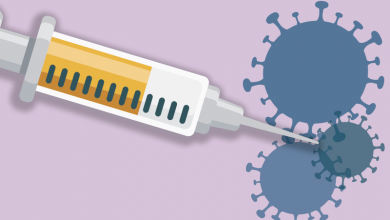Patients with sensitive health issues are more comfortable making appointments with chatbots


According to the Talkdesk US Consumer Healthcare Survey, conducted in August 2024 on the online platform Pollfish, nearly two-thirds (66%) of patients in the United States have a sensitive health issue. feel more comfortable making appointments with chatbots than with employees. Talkdesk received responses from 1,000 men and women aged 18 and over.
Meanwhile, the survey found that 62% of patients felt the support provided by their healthcare organizations had gotten worse or remained stagnant over the past year.
And 23% reported difficulties due to having to work with multiple departments to complete certain tasks such as scheduling appointments or insurance issues. However, 51% of respondents believe AI will enhance the patient experience in the coming year:
- Three in five men expressed optimism compared to 44% of women.
- 60% of Millennials expressed high hopes.
Patty Hayward is general manager of healthcare and life sciences at Talkdesk, a provider of a cloud-based, AI-powered customer experience platform. We interviewed her to dig deeper into the survey and the issues behind it.
Ask. Your survey shows that 66% of patients with sensitive health issues feel more comfortable making appointments with a chatbot than with a staff member. Why do you think this is?
ONE. It’s important to remember that discussing a patient’s health problems is the job of healthcare professionals. However, for patients, these issues can be deeply personal. This is understandable because nothing is more personal than your health.
When people are hesitant or embarrassed to talk about sensitive health issues, even with a healthcare professional or support staff, there can be many reasons why. Often it ultimately comes down to a fear of being judged. Our survey found that half of respondents said they appreciated that AI chatbots did not judge them. Another third of respondents said they appreciated that chatbots didn’t push them or make them feel stupid.
That’s why it’s important for provider organizations and payers to give patients and members the option of communicating with AI chatbots when they contact customer support. It’s less uncomfortable and intimidating, but can still achieve their goal of scheduling an appointment with a clinician or setting up a conversation with the payer’s customer support staff.
That being said, the survey also found that four out of five patients want to get medical advice from a real doctor, so they’re not ready for Dr. Bot. And chances are we’ll never reach that point. Our data shows that the combination of humans and AI is best for patients.
Q. 62% of US patients feel the support provided by their healthcare organizations has gotten worse or remained stagnant over the past year. What do you think AI can do to help this situation?
ONE. Unfortunately, their complaints about worsening support may be grounded in reality because most healthcare organizations today are woefully understaffed. And that’s where AI can transform the customer – and service agent – experience.
By providing patients and members with self-help support options, providers and payers can reduce the heavy workload that support staff often have to do. Additionally, AI can assist agents by providing them with relevant information about the patient/member in real-time while they are trying to help the caller, thereby facilitating for conversation.
Half of the patients in our survey are optimistic that AI will improve their overall experience with medical providers and healthcare systems in the coming year, and predict achieve more administrative efficiency. I think it’s a promising sign, and I believe healthcare consumers’ trust in AI will increase.
Q. 23% of patients in the United States reported difficulties with having to work with multiple departments to complete tasks such as scheduling appointments or insurance issues. What role can AI play here to help these patients?
ONE. Our survey clearly shows that many patients are fed up with having to deal with the complexity of our health care system. When nearly a quarter of your customers are frustrated, it’s a threat to business stability and revenue.
Do you know what happens when a person is transferred from one department to another and delayed at every step? Some of these patients simply give up trying to make an appointment or discuss insurance coverage, which means they are delaying treatment they may actually need.
AI can help by interacting with patients/members via voice or text to get the information needed to quickly transfer them to the right department. AI can also enable patients/members to get the information they need or schedule their own appointments without having to interact with agents or other support staff.
Q. 51% of respondents believe AI will enhance patient experience in the coming year. 60% of Millennials expressed high hopes. Where do you think these patients are getting their hopes up? How did they know about AI and how did they come to the conclusion AI will make things better?
ONE. Millennials are especially hopeful about AI because technology is almost always a part of their lives. They understand the value of emerging technologies and are not afraid of them. And they are hopeful about this particular technology because they use AI every day and see how it helps them in so many ways.
Their smartphones, computers, televisions, home appliances, and other devices are all AI-enabled. And they use AI when they interact with online retailers, when they make travel plans, when they conduct online research, and when they do their jobs. They see that AI does useful things and won’t try to kill them. You have to admit it’s an attractive value proposition.
Increasingly, this level of comfort with AI is becoming more common among consumers of all ages. Many Medicare patients are fully capable and willing to interact with AI bots to schedule appointments or refill prescriptions.
Follow Bill’s HIT news on LinkedIn: Bill Siwicki
Email him: [email protected]
Healthcare IT News is a publication of HIMSS Media.




